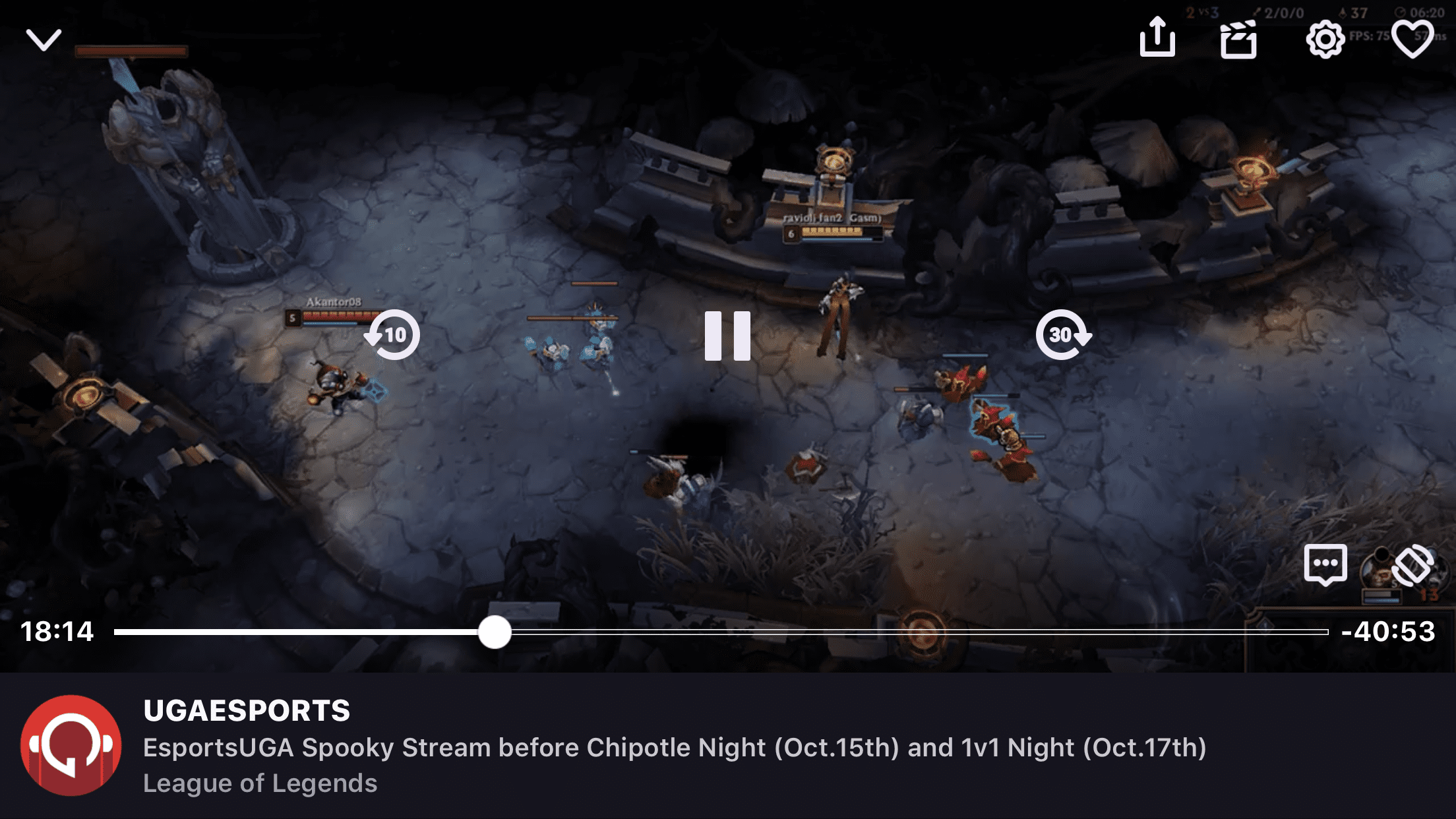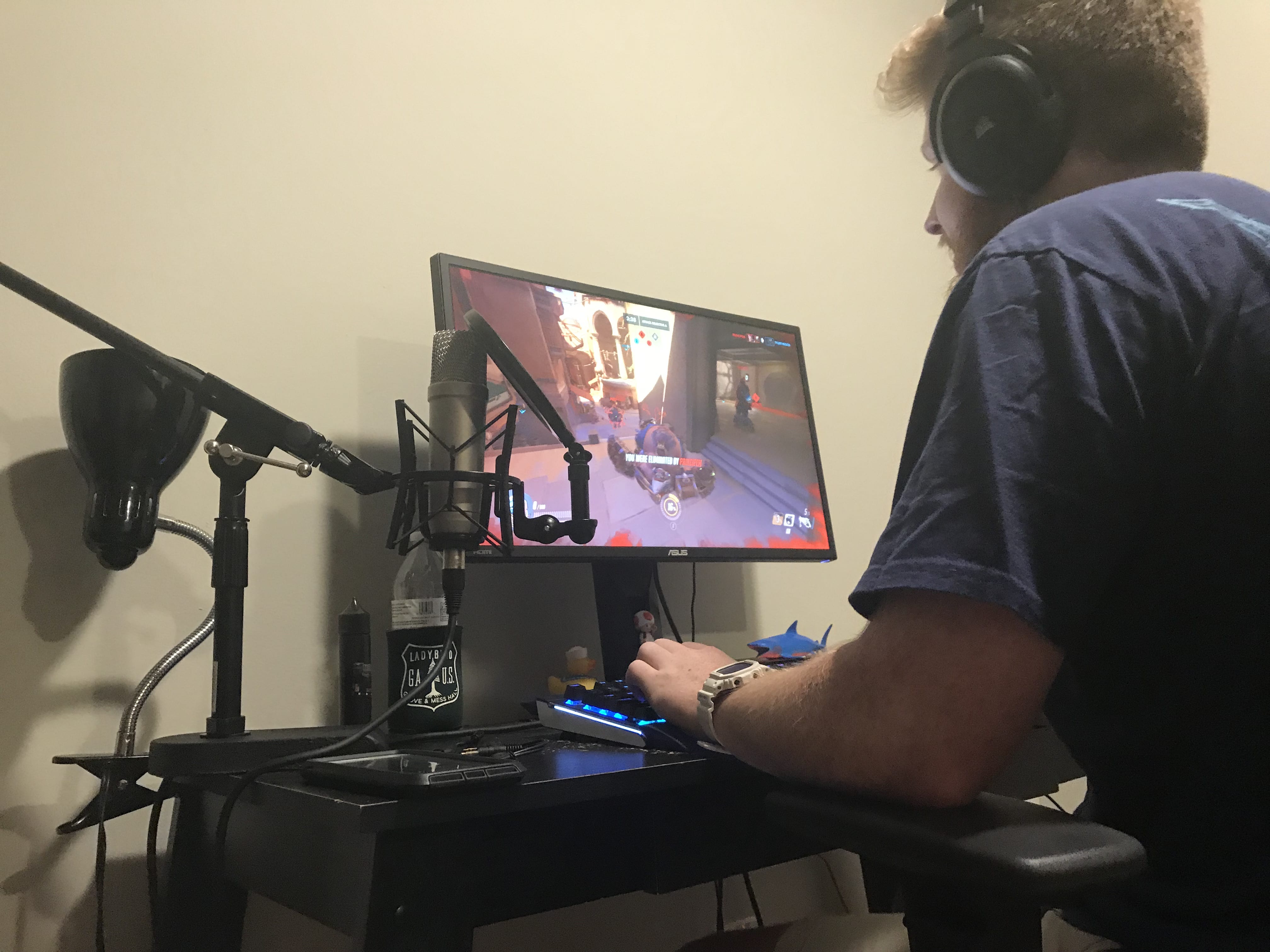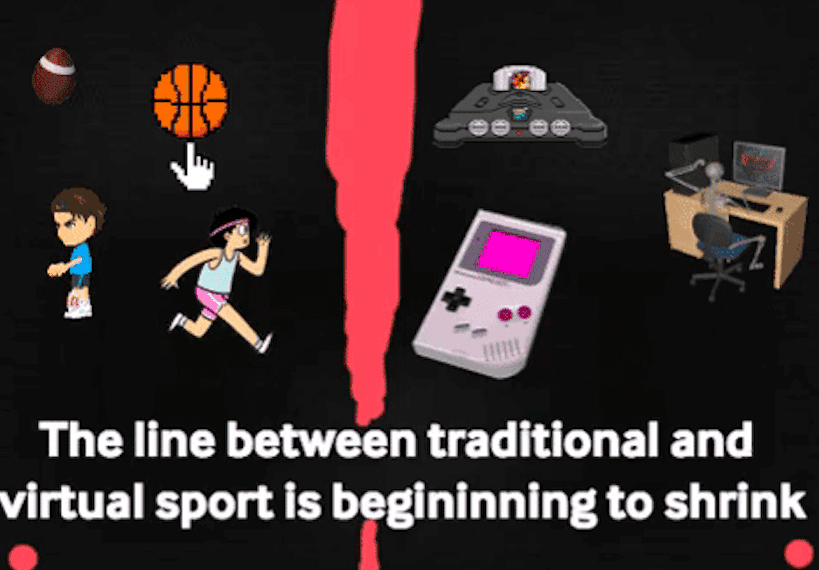ATHENS — The University of Georgia esports club started with 50-60 people in 2015. Three years later, the club’s grown to more than 300 members and multiple teams for different video games.
Why It’s Newsworthy: Esports offers an opportunity for kids and students to become professional video game players. Scholarships, fans and money are all potential benefits from competitive gaming.
Once just thought of as a hobby, esports is evolving into a legitimate phenomenon both in the United States and throughout the world. In 2017, Esports became a $1.5-billion industry and is projected to grow another 12 percent by the end of 2018.
A couple of influences in the rise of esports include online spectatorship, advanced technology and the video game Fortnite.
Fortnite is a battle royale game where players compete to be the last one standing.
In May, the popular video game surpassed $1 billion in revenue, almost all of the money coming in the form of in-app purchases. Players can purchase different outfits and dances in order to customize their players.
Jin Yong Jeong is the officer in charge of public relations for University of Georgia esports.
Jeong grew up in Korea, and when he came to America, looked forward to joining a large esports organization.
“Fortnite really brought together casual gamers and esports competitive players,” Jeong said. “I definitely think we have seen a growth in the club as a whole, both because of the growth nationally and the quality of our events and how many we can give to people as an organization.”
Fortnite is not the only game in esports. Overwatch, League of Legends and Dota 2 (Defense of the Ancients) are just a few of the myriad of games students compete in competitively.

Georgia State and Georgia Southern offer scholarships at their respective universities for esports. The competitions rise has given way to scholarships, but currently the University of Georgia does not offer any directly.
“Esports can only continue to get bigger for the time being and as people and younger generations hobby continues to be video games,” Jeong said. “I think UGA is slowly starting to accept that video games are going to be a staple in students’ lives as they are building the game center in Tate right now.”
Twitch is a platform that allows gamers to live broadcast themselves playing their favorite video games online. People all over the country follow their favorite streamers on Twitch and tune in to watch daily.
Jeong said many students in the club stream themselves while playing various games on Twitch.

Tyreal Yizhou Qian, a professor at the University of Georgia, is currently pursuing his Ph.D and is writing his dissertation on esports and online spectatorship of esport.
Qian explained the importance of Twitch to competitive gaming.
“Twitch is something completely different than just watching someone play sports. Streamers interact with their viewers,” Qian said. “You can’t see Lebron (James) play basketball from his own perspective and you can’t have Lebron commentate his own play. It gives the spectators a lot of freedom and provides a level of interaction that traditional sports can not.”

Tyler “Ninja” Blevins is the most popular streamer on the platform with 11,623,668 followers. Currently Michael “Shroud” Grzesiak sits at second with 4,470,294.
Blevins’ success is due to his ability playing Fortnite. Blevins’ rise to fame gives hope that many can carve out a successful career in playing video games.
Qian explained while many kids are now striving to be like their favorite esports streamers and players, the path to video game stardom is a rougher road than most.
“It’s really risky. The likelihood of becoming successful is really, really low,” Qian said. “That is something we should put up front. Esports players, especially professional ones, have a really short career. You don’t see esports pros able to play into their 30s. It requires extreme focus and hand-eye coordination, and that is just something you lose as you age.”
Tyler Moore, a student at Athens Technical College, recently began streaming in hopes of carving out one of those careers.
“I was hesitant at first because I never liked getting up in front of people,” Moore said. “But as I got better at the games and continued watching other streamers, I decided to go for it and see what happens.”
For Moore, video games are not just a hobby, but also a social opportunity.
“I think the social aspect is overlooked,” Moore said. “While I am playing and streaming, I am always talking to my friends and it’s like they’re in the room with me. That’s always been a big part of gaming for me.”
Moore’s pursuit for gaming glory comes at no small cost. He paid around $2500 for his entire gaming setup which includes a gaming computer, monitor, custom mouse, headset, microphone, and proper chair.

Moore hopes to see the stream continue to grow in order to benefit from it financially. Streamers make money based off of advertisements on their videos and subscribers. Streamers need 50 followers in order to begin monetizing their videos. Moore currently sits at 21 after two weeks of streaming.
“If you want to be a successful streamer, think about your content,” Qian said. “Playing video games and growing an audience isn’t easy. You can become a successful streamer from your personality. You can also be very good and rely on your skill. Every streamer is different, how can you make it unique? That is what people need to consider when going into streaming.”
Esports’ future is bright but it’s widely debated whether the competition is truly a sport, and that may be one of the reasons why it struggles to cater to older audiences.

“I honestly am not sure if it is a sport,” Jeong said. “I box amateurly and there definitely is a giant difference between the skills I use when I box as compared to the skills I use when I play video games. So I don’t get offended when people say it isn’t a sport. It’s really how people personally choose to classify it.”
Sports in the traditional sense take place on a court or field and require some sort of physical exertion. The future of esports looks bright and it may challenge that status quo.
“I believe esports can learn a lot from traditional sport but it will have its own path to success, it’s its own thing,” Qian said. “In the future I believe it will differentiate itself from traditional sport and be its own category.”
Tyler Donaldson is a senior majoring in journalism.







